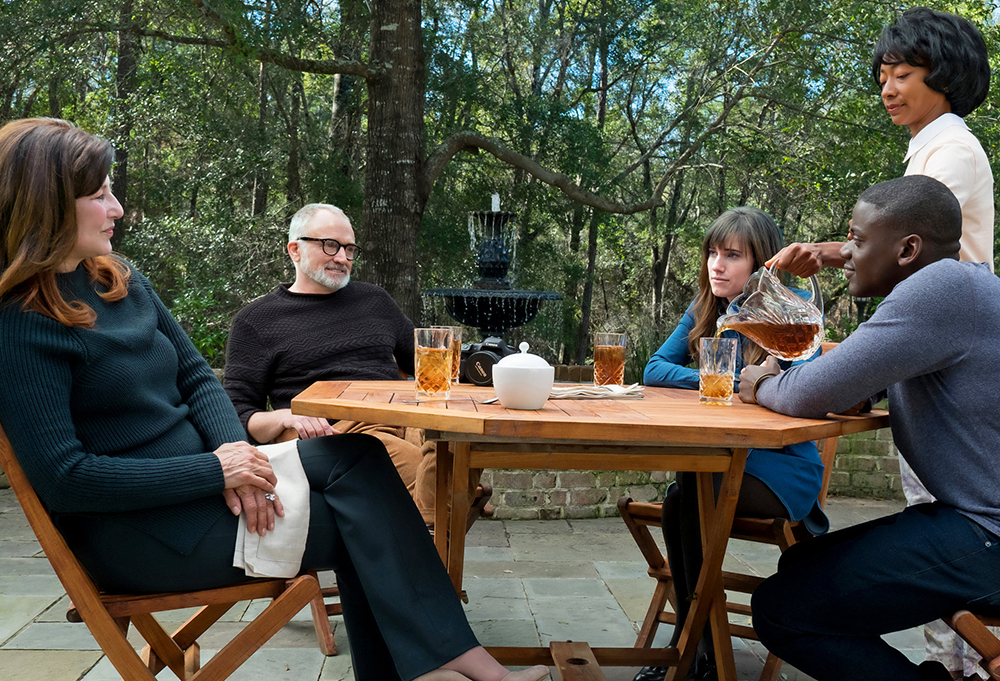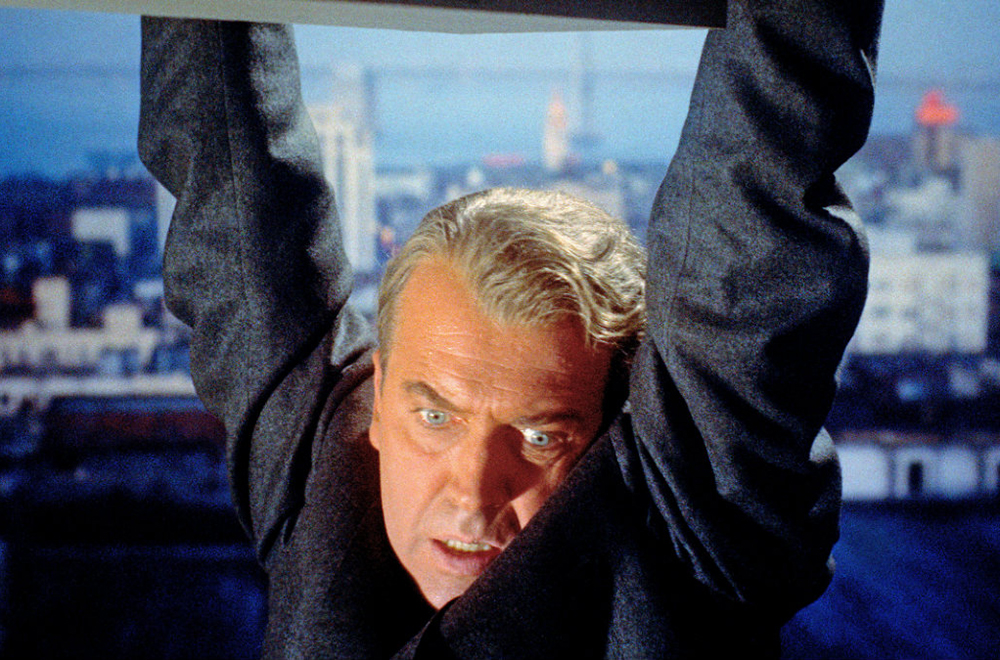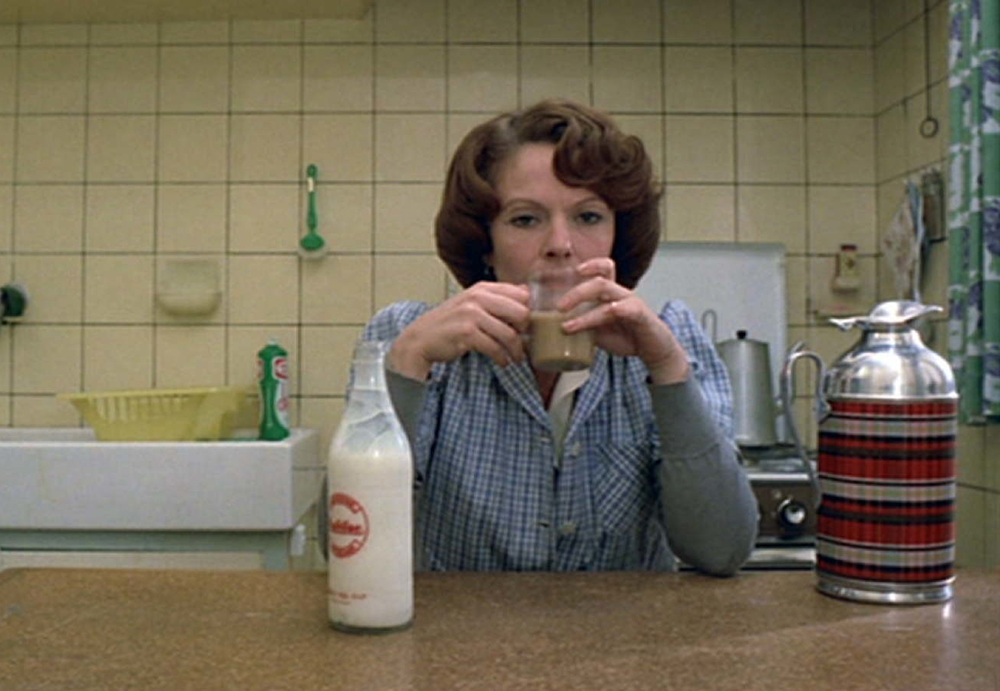Chantal Akerman’s 201-minute epic “Jeanne Dielman, 23 Quai du Commerce, 1080 Bruxelles” (1975) soared 34 spots to take over as the greatest film of all time in Sight & Sound’s latest poll. The British film magazine announced the results of its once-a-decade critics’ poll on Thursday, surveying 1,639 participants, nearly doubling the number of voters that took part in the 2012 edition. In that round, Alfred Hitchcock’s “Vertigo” (1958) unseated Orson Welles’ “Citizen Kane” (1941) as the top film, ending “Kane’s” five-decade reign at the top.
Akerman’s film is just the fourth in the seventy-year history of the poll to hold the top slot. In 1952, Vittorio De Sica’s “Bicycle Thieves” (1948) won with 25 votes and then came “Kane,” ranking number one from 1962-2012, until “Vertigo” surpassed it. This year, “Vertigo” and “Kane” were number 2 and 3, respectively, with Yasujiro Ozu’s “Tokyo Story” (1953) and then Wong Kar-wai’s “In the Mood for Love” (2000) rounding out the top five.
100 Greatest Films—the Ascent of ‘Jeanne Dielman’
The ascent of “Jeanne Dielman” marks not just a triumph for Akerman, whose “News from Home” (1976) made its debut on the list, tied at 52nd, but it represents a dramatic shift in the list’s composition, acknowledging directors and films previously underrepresented. In 2012, for example, only two female filmmakers ranked in the top 100. This year, there were four female-directed films in the top 20, including “Dielman,” Claire Denis’ “Beau Travail” (2000; ranked 7th), Agnes Varda’s “Cleo” from 5 to 7 (1962; 14th) and “Meshes of the Afternoon” (1943; 16th) co-directed by Maya Deren and Alexander Hammid. Varda matched Akerman with two films on the list: her “The Gleaners and I” (2000; 67th) was a rare documentary selection.
Julie Dash and Jane Campion joined the top 100 as well this year, Dash with “Daughters of the Dust” (1990; 60th), and Campion with “The Piano” (1994; 50th). Barbara Loden’s “Wanda” (1970; 48th), her first and only feature, was another new entrant, and Celine Sciamma’s “Portrait of a Lady on Fire” (2019; 30th), tied for the youngest movie on the list. Czech New Wave auteur Věra Chytilová is the last female newcomer, with her provocative comedy “Daisies” (1966; 28th) surging.

Some Notable Movements
Dash is the first Black woman to make the top 100, and she’s one of six Black filmmakers new to the top 100. Whereas in 2012, only one film directed by a Black director (Djibril Diop Mambéty’s “Touki Bouki” from 1973) was included, this year welcomed a variety of Black filmmakers from past and present. Jordan Peele’s “Get Out” (2017) was tied at 95 with several films, including Ousmane Sembene’s “Black Girl” (1965). Improving from 2012, “Touki Bouki” rose from 93 to 66, just behind Dash’s “Daughters,” which received the same number of votes as Barry Jenkins’ Best Picture Oscar-winner “Moonlight” (2016). Charles Burnett, a key figure in the L.A. Rebellion movement alongside Dash, had his “Killer of Sheep” (1977; 43rd) make the leap, and the highest-ranked film by a Black filmmaker is Spike Lee’s searing “Do The Right Thing” (1989; 24th).
Notable films bounced from the top 100 include Francis Ford Coppola’s “The Godfather Part II” (1974; 31st in 2012), Martin Scorsese’s “Raging Bull” (1980; 53rd), and David Lean’s “Lawrence of Arabia” (1962; 81st). The only 21st Century films on 2012’s list climbed much higher. David Lynch’s “Mulholland Drive” (2001; 8th) rose 20 slots while “In the Mood for Love” jumped nineteen. This year’s list skews much younger, with nine films made since 2000 cracking the top 100, including Bong Joon ho’s “Parasite” (2019; 90th), the first non-English film to win the ‘Best Picture’ Oscar.
The New List Will Publish in January 2023
The fourth edition of the directors’ poll also had some changes at the top. Stanley Kubrick’s “2001: A Space Odyssey” (1968) was the new winner, with “Kane” in second and previous winner “Tokyo Story” tied at fourth with “Jeanne Dielman.” Sight & Sound received ballots from 480 directors, compared to 358 in 2012.

Mike Williams, the magazine’s editor-in-chief, lauded “Jeanne Dielman” as a “landmark feminist film” which continues to challenge the status quo. And filmmaker Joanna Hogg, commenting in a release announcing the list’s results praised Akerman’s “irrefutable” influence, while noting the director had complicated feelings about “Dielman.”
The full results and commentary on the “100 Greatest Films” will be published in Sight & Sound’s January double issue. Individual Top 10 ballots will be live on Sight & Sound’s website in early January, alongside the expanded “Top 250” critics’ list. The Movie Buff’s coverage will continue next week with an analysis of the results compared to our predictions.
Support the Site: Consider becoming a sponsor to unlock exclusive, member-only content and help support The Movie Buff!

